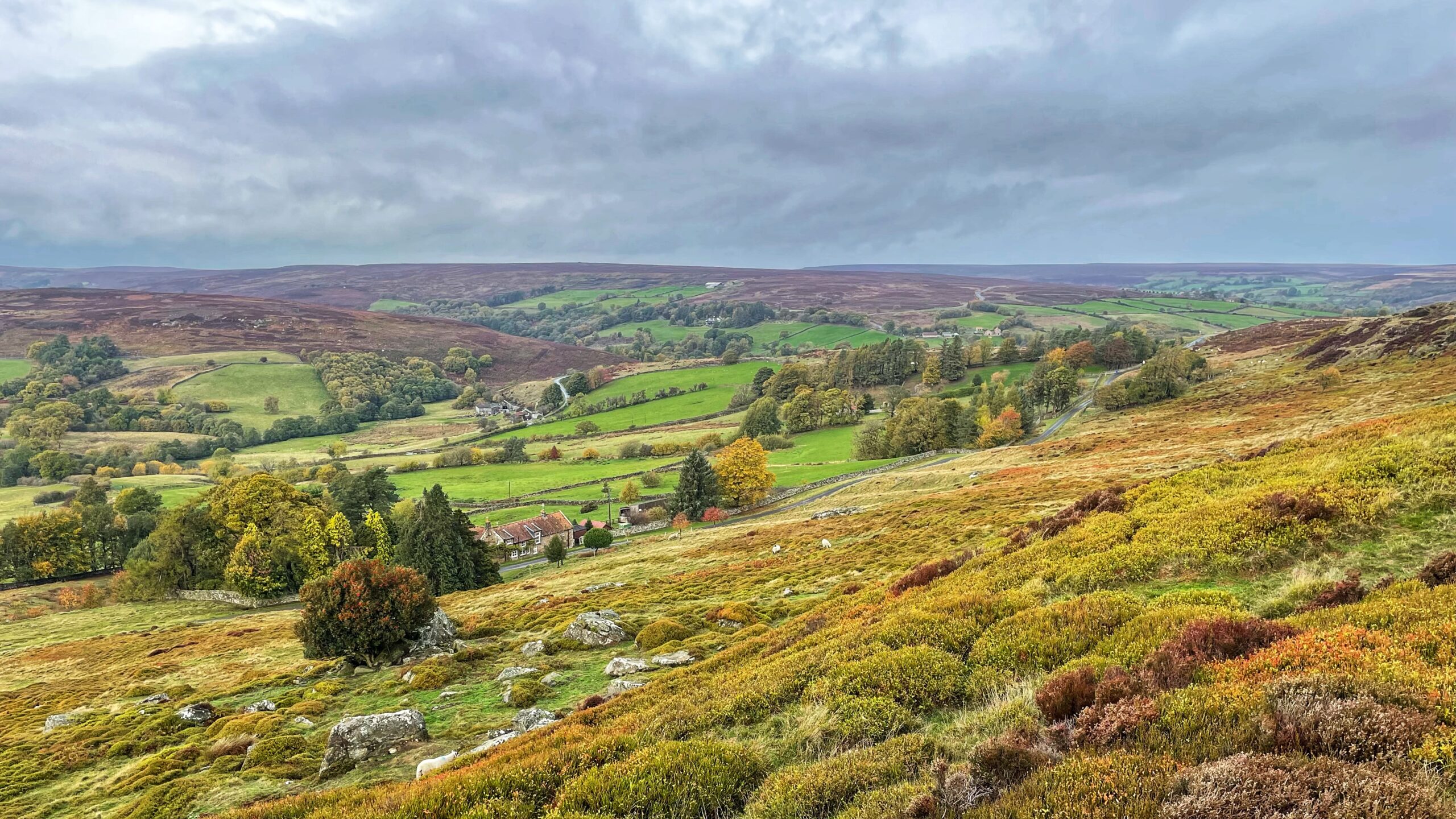Another view of Low House in Westerdale, this time from the south-east. As mentioned yesterday, this was once the home of John Fairfax-Blakeborough, folklorist, writer, and stalwart of old Cleveland.
Major John Fairfax-Blakeborough (1883–1976) first saw the light of day in Guisborough on 16 January 1883. Known as Jack, he was the son of Richard Blakeborough, the celebrated Cleveland folklorist. By sixteen he was already in print, contributing to the Northern Weekly Gazette, whose articles later appeared in the Whitby Gazette. A brief spell in a broker’s office followed, but the lure of words proved stronger than the lure of ledgers, and he joined the staff of the Middlesbrough Evening Telegraph. At twenty-one he struck out as a freelance writer, devoting himself to country sports and horseracing. Horses had always been in his blood; he gained practical experience during three years at a Cleveland training stable, and hunted twice a week whenever he could1ACT/97-005. The Richard Blakeborough and John Fairfax-Blakeborough Yorkshire Folklore Collection, 1750-1820; 1868-1974. Archives of Cultural Tradition. University of Sheffield. January 1999. Biographical History..
During the First World War he served with distinction as a Major in the 15th/19th King’s Hussars, earning the Military Cross. Peace brought no idleness: he became a racing judge at Sedgefield, holding his Turf licence almost to the end of his life. For two decades he served as secretary of the Cleveland Bay Horse Society, later rising to its presidency, and he bred, rode, and raced his own horses with equal enthusiasm.
His output was prodigious—no fewer than 112 books on horse racing, Yorkshire folklore, and the Cleveland Bay. Among the best known are Yorkshire Days and Yorkshire Ways (1935) and The Spirit of Yorkshire (1954), the latter written with his son Richard Noel John Fairfax-Blakeborough. For more than half a century he wrote regular columns for the Darlington and Stockton Times and Yorkshire Life, a record of steady industry few could match.
His early folklore columns in the Northern Weekly Gazette remain a trove of local myth and legend, though his accounts of hunting and killing foxes make uneasy reading today. Still, as people say with that weary shrug, he was a man of his time. John Fairfax-Blakeborough died at Low House on 1 January 1976, leaving behind a body of work as sturdy and enduring as the Yorkshire moors he so clearly loved.
- 1ACT/97-005. The Richard Blakeborough and John Fairfax-Blakeborough Yorkshire Folklore Collection, 1750-1820; 1868-1974. Archives of Cultural Tradition. University of Sheffield. January 1999. Biographical History.

Leave a Reply